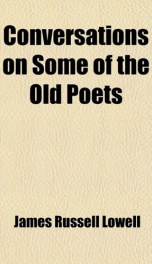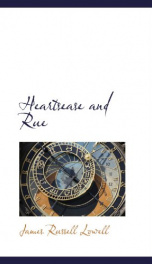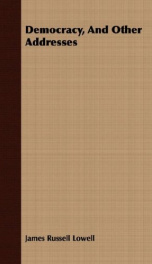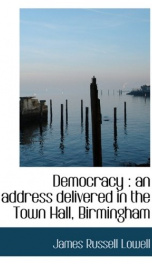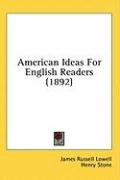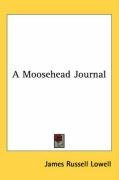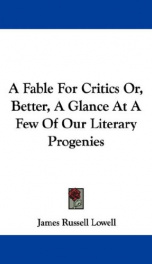Purchase of this book includes free trial access to www.million-books.com where you can read more than a million books for free. This is an OCR edition with typos. Excerpt from book: THIRD CONVERSATION. THE OLD DRAMATISTS. JOHN. I Believe it was Dr. Johnson (surely, it was no poet) who first said that all good poetry could be translated into as good prose. It is plain that he saw no distinction between the two, except in the metre and rhyme. I should judge so, at least, from his own verses. PHILIP. He meant that all poetry must be translatable into " common sense," that popular altar upon whose horns dulness and prejudice are so ready to cling. But how is Pegasus better than a dray-horse, with this market- cart trundling behind him? Doubtless, some of the truest poetry has been written without either rhyme or metre; but it has lacked one of its highest adornments, and one which the most poetical thoughts demand. Metre and rhyme are wings to the artist, and crutches to the artificer; they may lift the one to a more empyreal vantage-ground, but they will only change the natural gait of the other for a hobble. The grandest and most noble part of poetry is independent of them. Yet, wanting these, a poem shall want thecompleteness of its effect. I believe both of them to be the instinctive desires of the most amply poetical spirits. I could cite many poems which would be nothing without them, yet which have the blessed power to lead my heart into the cool stillness of memory, or to the breezy headlands of hope. John. Prose may do the same. PHILIP. Ay, but not so cheaply and simply. It is a great gift to be able to conceive and express those thoughts which entice us out of the actual into the ideal; a yet greater one, to utter such as teach us to unite the two; but, surely, that is the greatest gift of all which super- adds to these a keener and more refined delight. There are moods, too, in which pleasurable emotion is all that the mind is c...
